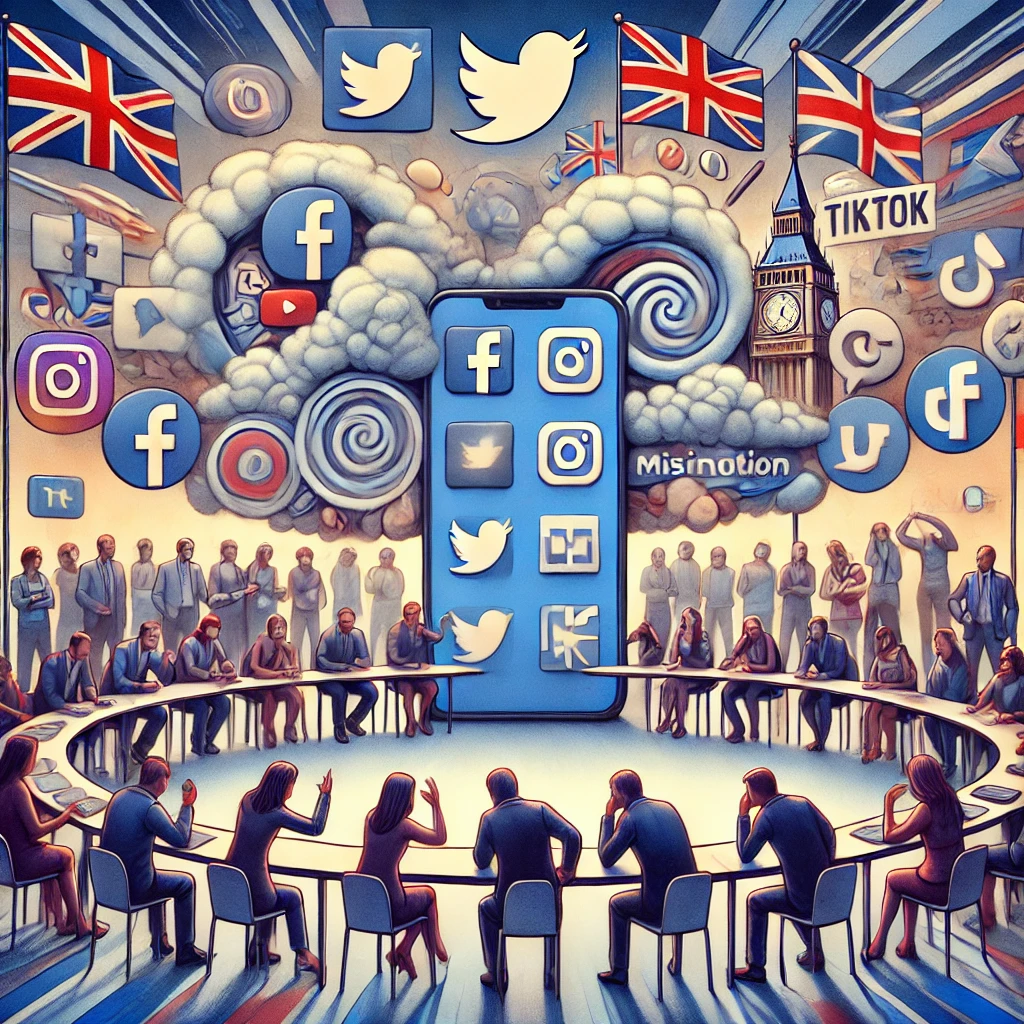
How Social Media Shapes Public Opinion in the UK
Social media has become a dominant force in shaping opinions across the globe, and the UK is no exception. With platforms like Twitter, Facebook, Instagram, and TikTok becoming integral to daily life, the way people form, share, and act on their opinions has been fundamentally transformed. While social media brings undeniable benefits in connecting people and spreading information, it also raises concerns about misinformation, polarisation, and manipulating public sentiment. This blog explores how social media influences opinions in the UK and its implications for society.
1. The Political Landscape
Echo Chambers and Polarisation
Social media algorithms are designed to show users content that aligns with their interests and beliefs. While this increases engagement, it also creates echo chambers where people are primarily exposed to viewpoints that reinforce their own. This has contributed to political polarisation in the UK, with debates over issues like Brexit and immigration becoming increasingly divisive. Individuals often find themselves in insulated bubbles, challenging constructive dialogue across ideological divides.
Campaigning and Misinformation
Political campaigns in the UK have embraced social media as a primary tool for reaching voters. Platforms like Facebook and Twitter allow political parties and candidates to target specific demographics with tailored messages. However, the rise of misinformation and “fake news” poses significant challenges. From manipulated videos to misleading headlines, false information can spread rapidly, shaping public opinions and, in some cases, influencing election outcomes. The 2016 EU referendum and subsequent general elections highlighted the power of social media in swaying voter perceptions.
Foreign Influence
Foreign governments have also been implicated in attempts to influence public opinion in the UK through social media. Reports of coordinated disinformation campaigns, often linked to state-sponsored actors, have surfaced about events like Brexit and general elections. These campaigns aim to sow discord, polarise debates, and undermine trust in democratic institutions. The ability of foreign entities to exploit social media platforms highlights the need for vigilance and robust countermeasures to protect the integrity of public discourse.
2. Public Awareness and Activism
Driving Social Movements
Social media has become a powerful platform for raising awareness about societal issues. Movements like #MeToo and Black Lives Matter gained substantial traction in the UK, mobilising millions to advocate for change. Instagram, TikTok, and Twitter are hubs for activists to share stories, organise protests, and educate the public. These platforms amplify voices that might otherwise go unheard, fostering a more engaged and informed society.
Youth Engagement
Young people in the UK are mainly influenced by social media activism. Platforms like TikTok and Instagram have made complex topics—such as climate change, mental health, and social justice—accessible and engaging. As a result, younger generations are increasingly shaping public discourse and pushing for systemic change.
3. The Impact on Consumer Behaviour
Brand Perception and Reviews
Social media has transformed how UK consumers engage with brands. Before purchasing, people often consult online reviews or follow influencers who provide authentic feedback. A viral post can make or break a brand’s reputation, as public perception spreads rapidly across platforms.
Viral Trends
Platforms like TikTok are particularly influential in driving consumer trends. A viral video can turn obscure items, from beauty products to books, into must-haves almost overnight. This trend-driven culture significantly shapes consumer opinions and spending habits.
4. The Spread of Misinformation
Health and Science
The COVID-19 pandemic underscored the dangers of misinformation on social media. Conspiracy theories about vaccines, lockdowns, and treatment options spread widely, influencing public opinion and, in some cases, public behaviour. Despite efforts by platforms to implement fact-checking mechanisms, misinformation often travels faster than corrections, leaving lasting impressions.
The Role of Fact-Checking
While initiatives to combat misinformation are growing, they face an uphill battle. Fact-checking organisations in the UK work tirelessly to debunk false claims, but the speed and scale of misinformation’s spread remain significant challenges.
5. Mental Health and Body Image
Pressure to Conform
Social media often presents curated and idealised lifestyles, creating unrealistic expectations around beauty, success, and happiness. This has a profound impact on mental health, particularly among young people in the UK. The pressure to conform to these standards can lead to issues such as anxiety, depression, and low self-esteem.
Positive Mental Health Conversations
Conversely, social media has also opened up conversations about mental health, reducing stigma and encouraging people to seek support. Campaigns like #MentalHealthAwareness have gained traction, promoting understanding and fostering supportive online communities.
6. Community Formation
Local Engagement
Platforms like Facebook groups and Nextdoor allow users to discuss local issues, from neighbourhood watch initiatives to community events. This regional focus helps shape opinions on community-level decisions and fosters a sense of belonging.
Niche Communities
Social media connects people with shared interests or challenges, enabling the formation of niche communities. Whether it’s a group for new parents, hobbyists, or individuals with specific health conditions, these communities provide support and influence collective opinions.
7. The Rise of Influencers
Influencers hold considerable sway over public opinion, particularly among younger demographics. Their endorsements or critiques of products, policies, or trends can shape perceptions and drive behaviour. In the UK, influencers play a significant role in sectors like fashion, beauty, and fitness, as well as in raising awareness about social and political issues.
Conclusion
Social media has undeniably reshaped how opinions are formed and shared in the UK. While it provides a platform for connection, awareness, and activism, it also presents challenges such as misinformation, polarisation, and mental health pressures. The role of foreign influence further complicates the landscape, highlighting the need for vigilance in safeguarding public discourse. As social media evolves, individuals, organisations, and policymakers must navigate its complexities responsibly. Encouraging media literacy, promoting transparency, and fostering open dialogue are essential steps towards harnessing the positive potential of social media while mitigating its downsides.


